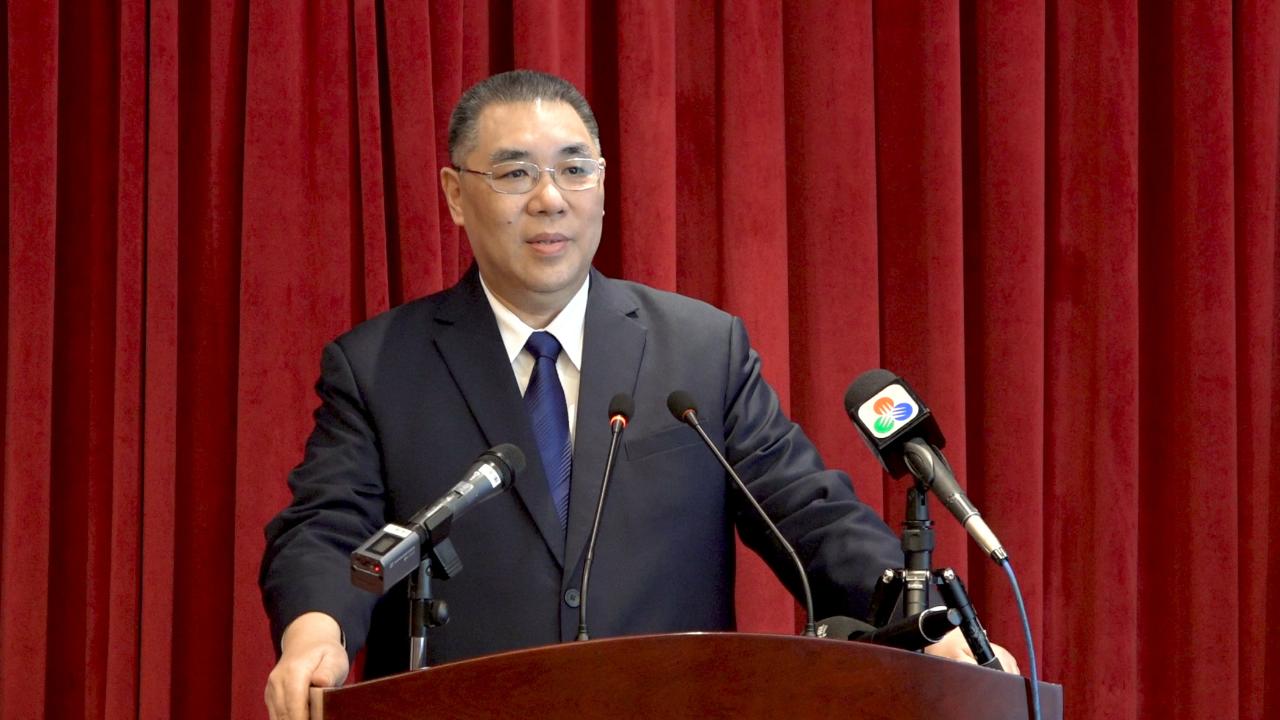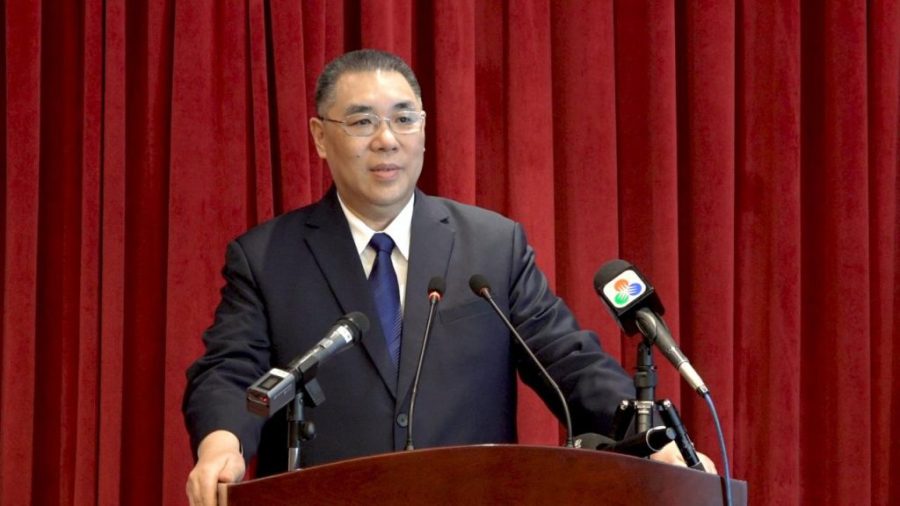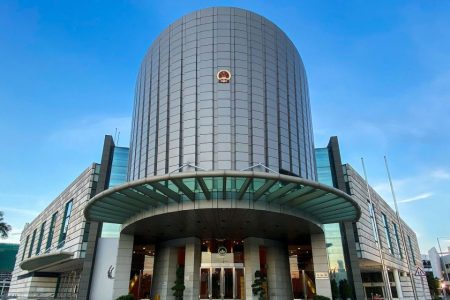Chief Executive Fernando Chui Sai On said Wednesday that the Secretariat for Administration and Justice will study the possible criminalisation of the operation of illegal inns.
The chief executive’s remarks came after the strikingly opposing views recently expressed by Secretary for Security Wong Sio Chak and Secretary for Social Affairs and Culture Alexis Tam Chon Weng on how to tackle the illegal provision of accommodation services in residential buildings.
Chui spoke to reporters at the airport before departing for Beijing where he is to sign on behalf of the Macau Special Administrative Region (MSAR) government, the “Agreement on Supporting Macau’s Full Participation in, and Contribution to the Belt and Road Initiative” with the National Development and Reform Commission (NDRC).
Secretary for Administration and Justice Sonia Chan Hoi Fan is among the various members of Chui’s entourage on the two-day visit to the national capital.
Law 3/2010 on the Prohibition of Providing Illegal Accommodation came into force in 2010. According to the law, those illegally providing accommodation face a fine of between 200,000 and 800,000 patacas. The law also states that those who solicit clients to stay in an illegal inn face a fine of between 20,000 and 100,000 patacas.
Commentators and civic leaders have repeatedly urged the government to criminalise the illegal provision of accommodation by proposing amendments to Law 3/2010. They have said that the current law does not act as an efficient deterrent to those running illegal inns as the offenders only face a fine and cannot be held criminally liable. The legislature would have to vote on any government-proposed amendment to the law.
During a Q&A session in the Legislative Assembly (AL) about his portfolio’s 2019 policy guidelines last week, Wong said it was not a good idea to criminalise the illegal provision of accommodation by amending the current illegal accommodation law.
During last week’s Q&A session, Wong said that solving particular problems by judicial means would always incur a high cost, adding that the criminalisation of particular offences should always be used as the last resort to solve them. Wong also said that if the offence of running an illegal inn would be criminalised, it would only amount to a minor crime based on Macau’s legal system. He said that in this situation, non-custodial probation would typically be granted to the offender if he or she was found guilty of running an illegal inn, adding that this would not act as a deterrent.
However, during a Q&A session in the legislature about his portfolio’s 2019 policy guidelines on Tuesday, Tam said that he agreed with the view raised in civil society that illegal inns should be criminalised.
Tam noted that those running an illegal inn merely face a fine, which he said means that the “cost” for them to commit the offence was “too low”. He said that the criminalisation of the operation of illegal inns would act as an efficient deterrent to potential offenders.
Chui said yesterday that although the two policy secretaries have recently expressed different views on the illegal accommodation issue, the government has a set of administrative procedures for tackling the situation.
Chui said that different segments of civil society are concerned about the operation of illegal inns in the city and that the government has been playing close attention to the issue.
Chui said that whether the operation of illegal inns is criminalised or not has pros and cons, adding that the issue would be studied by the Secretariat for Administration and Justice – in line with the government’s established practice when encountering this kind of situation. The chief executive pledged that the government would announce the findings after finishing the study.






